Filter by

The Coombs : A House of Memories
The Coombs Building at The Australian National University is a Canberra icon. Named after one of Australia’s greatest administrators and public intellectuals—‘Nugget’ Herbert Cole Coombs—for more than forty years the building has housed two of the University’s four foundational Schools: the Research School of Pacific and Asian Studies and the Research School of Social Sciences. This…
- Edition
- -
- ISBN/ISSN
- 9781921934179
- Collation
- -
- Series Title
- -
- Call Number
- 900 LEY c

Humboldt and the modern German university : An intellectual history
This book is about the idea of the university in modern Germany. Its primary focus is how the transformation of the Humboldtian tradition gave direction to debates around higher education. By combining approaches from intellectual history, conceptual history and the history of knowledge, the study investigates the ways in which Humboldt’s ideas have been appropriated for various purposes in d…
- Edition
- -
- ISBN/ISSN
- 9789198376814
- Collation
- -
- Series Title
- -
- Call Number
- 900 OST h
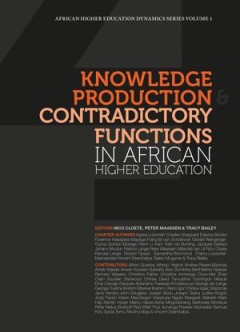
Knowledge Production and Contradictory Functions in African Higher Education
"This volume brings together excellent scholarship and innovative policy discussion to demonstrate the essential role of higher education in the development of Africa and of the world at large. Based on deep knowledge of the university system in several African countries, this book will reshape the debate on development in the global information economy for years to come. It should be mandatory…
- Edition
- -
- ISBN/ISSN
- 9781920677855
- Collation
- -
- Series Title
- -
- Call Number
- 370 KNO

The Dream Is Over : The Crisis of Clark Kerr’s California Idea of Higher Ed…
The Dream Is Over tells the extraordinary story of the 1960 Master Plan for Higher Education in California, created by visionary University of California President Clark Kerr and his contemporaries. The Master Plan’s equality of opportunity policy brought college within reach of millions of American families for the first time and fashioned the world’s leading system of public research univ…
- Edition
- -
- ISBN/ISSN
- -
- Collation
- -
- Series Title
- -
- Call Number
- 370 MAR d

Social Media in Higher Education Case Studies, Reflections and Analysis
How does social media affect working life in Higher Education? How are universities harnessing its power to aid student learning? This innovative collection brings together academics and those working in professional services to examine these questions and more. The diverse and expert contributors analyse the many ways social media can be used to enhance teaching and learning, research, profess…
- Edition
- -
- ISBN/ISSN
- -
- Collation
- -
- Series Title
- -
- Call Number
- -
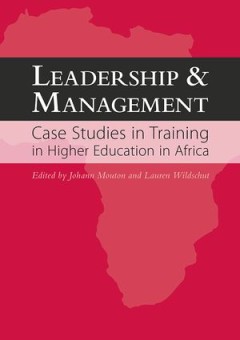
Leadership and Management : Case Studies in Training in Higher Education in A…
There has been a resurgence of interest in training programmes for higher education leaders and management (HELM) at African universities in recent times. Although there have been a few cases of evaluation studies of such programmes in Africa, a more systematic review of the lessons learnt through these programmes has not been done. This book aims to document and reflect on the learnings from i…
- Edition
- -
- ISBN/ISSN
- 9781920677909
- Collation
- 144 halaman
- Series Title
- -
- Call Number
- 370 LEA

Critical perspectives on internationalising the curriculum in disciplines : r…
Universities around the world have embraced internationalisation at the policy level, but struggle to put that policy into practice, particularly at the coalface of teaching and learning. To date, faculty voices have been largely silent in the literature on internationalising the curriculum. This book begins to address this gap. What does 'internationalisation of the curriculum' (IoC) mean in p…
- Edition
- 1
- ISBN/ISSN
- 9789463000857
- Collation
- XVIII, 310
- Series Title
- Global Perspectives on Higher Education
- Call Number
- 370
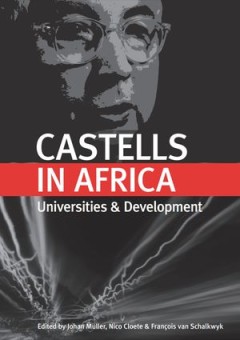
Castells in Africa : Universities and Development
Castells in Africa: Universities and Development collects the papers produced by Manuel Castells on his visits to South Africa, and publishes them in a single volume for the first time. The book also publishes a series of empirically-based papers which together display the multi-faceted and far-sighted scope of his theoretical framework, and its fecundity for fine-grained, detailed empirical in…
- Edition
- -
- ISBN/ISSN
- 9781920677930
- Collation
- -
- Series Title
- -
- Call Number
- 370 MUL c
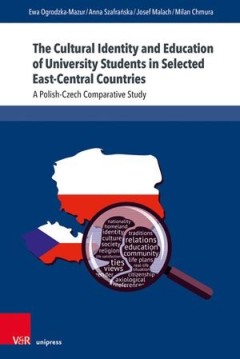
The Cultural Identity and Education of University Students in Selected East-C…
In Polish and Czech pedagogy, there have not been many studies on the social, cultural and educational functioning of academic youth in a culturally diversified environment. The analysis of identity behaviours presented by university students from the Polish-Czech borderland and of their learning potentialities will provide a chance for mutual recognition, understanding and the enrichment of bo…
- Edition
- -
- ISBN/ISSN
- 9780000000773
- Collation
- 238 halaman
- Series Title
- -
- Call Number
- 370 OGR c
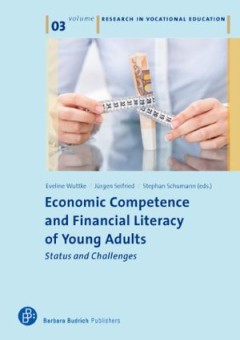
Economic Competence and Financial Literacy of Young Adults : Status and Chall…
The authors take a detailed look at the economic competence and financial literacy of young adults, especially of those who start an apprenticeship or who take up their studies at a university. Economic competence and financial literacy are of special interest within this group, because these young people are – mostly for the fi rst time in their lives – responsible for autonomously managin…
- Edition
- Eveline Wuttke, Jürgen Seifried, Stephan Schumann
- ISBN/ISSN
- 9783847402831
- Collation
- 235 halaman
- Series Title
- Research in Vocational Education volume 3
- Call Number
- 330 WUT e
 Computer Science, Information & General Works
Computer Science, Information & General Works  Philosophy & Psychology
Philosophy & Psychology  Religion
Religion  Social Sciences
Social Sciences  Language
Language  Pure Science
Pure Science  Applied Sciences
Applied Sciences  Art & Recreation
Art & Recreation  Literature
Literature  History & Geography
History & Geography